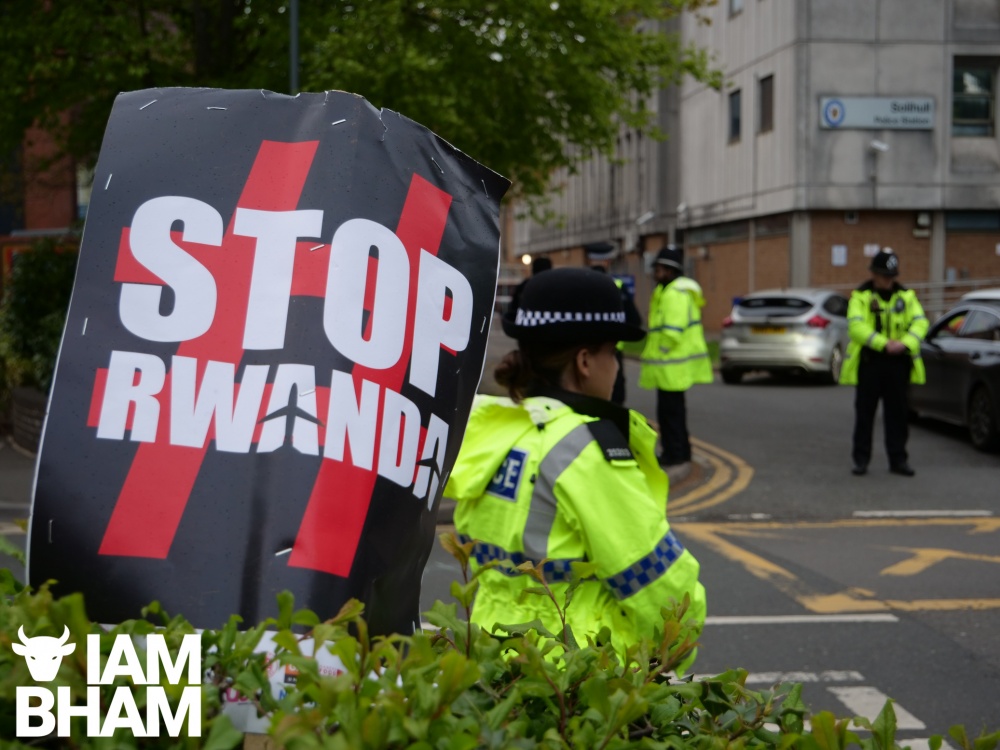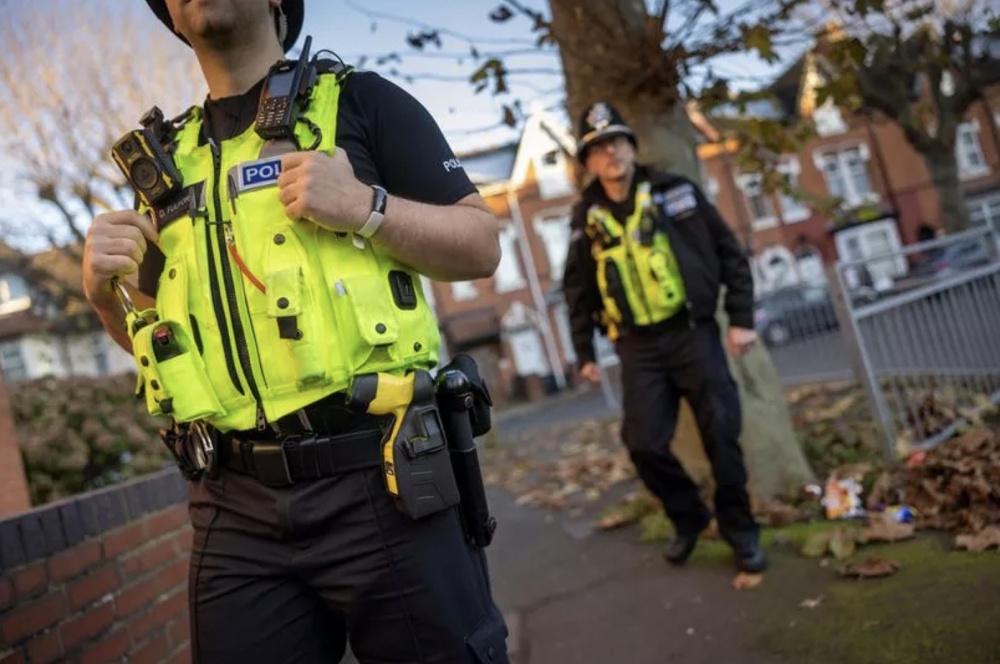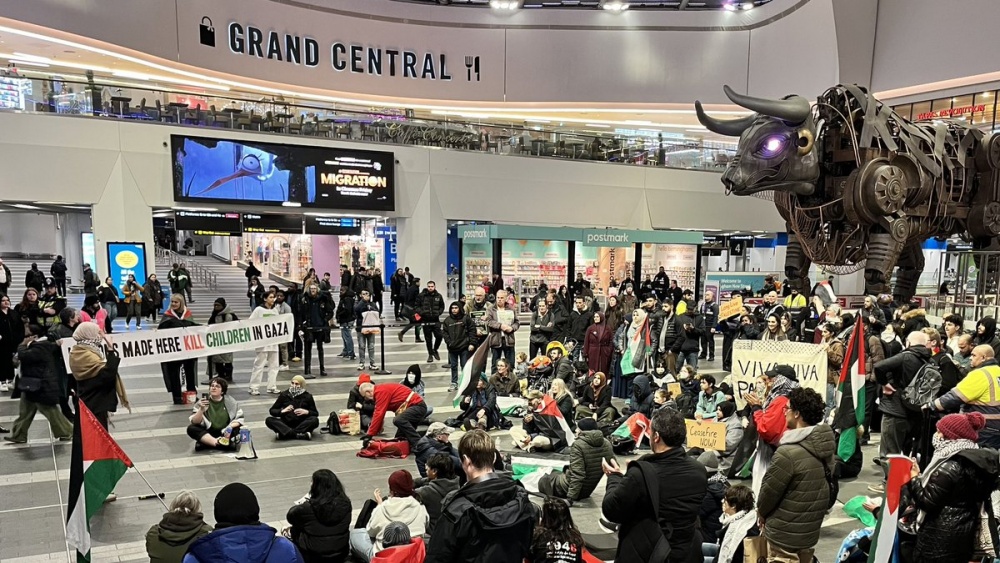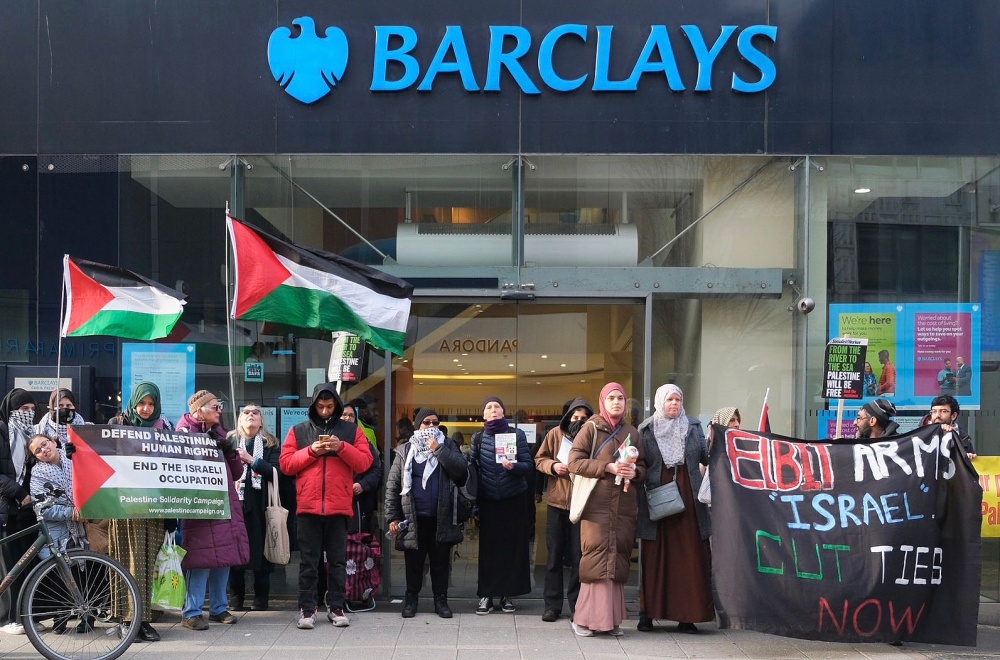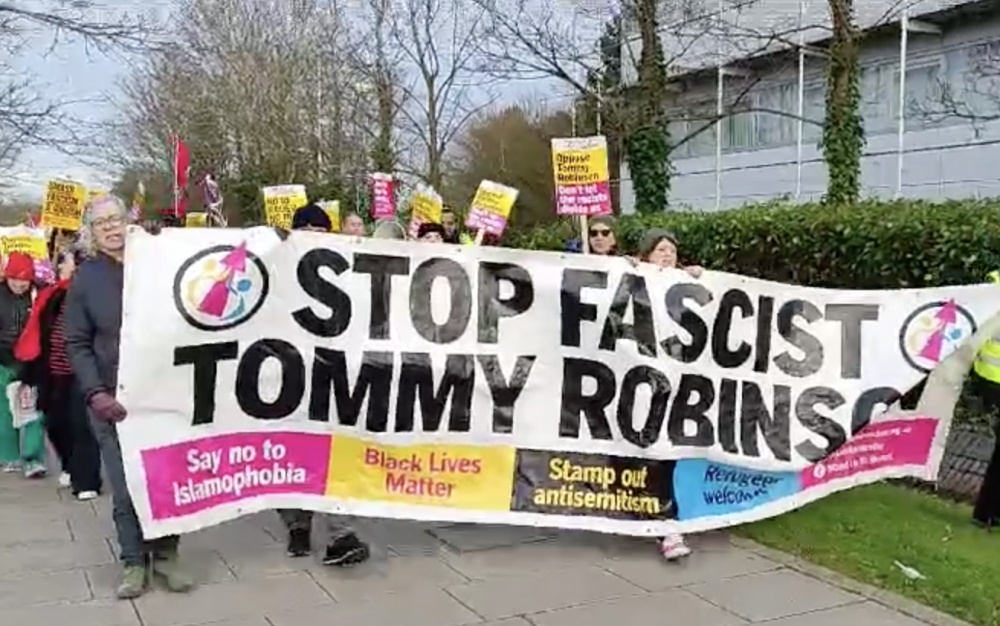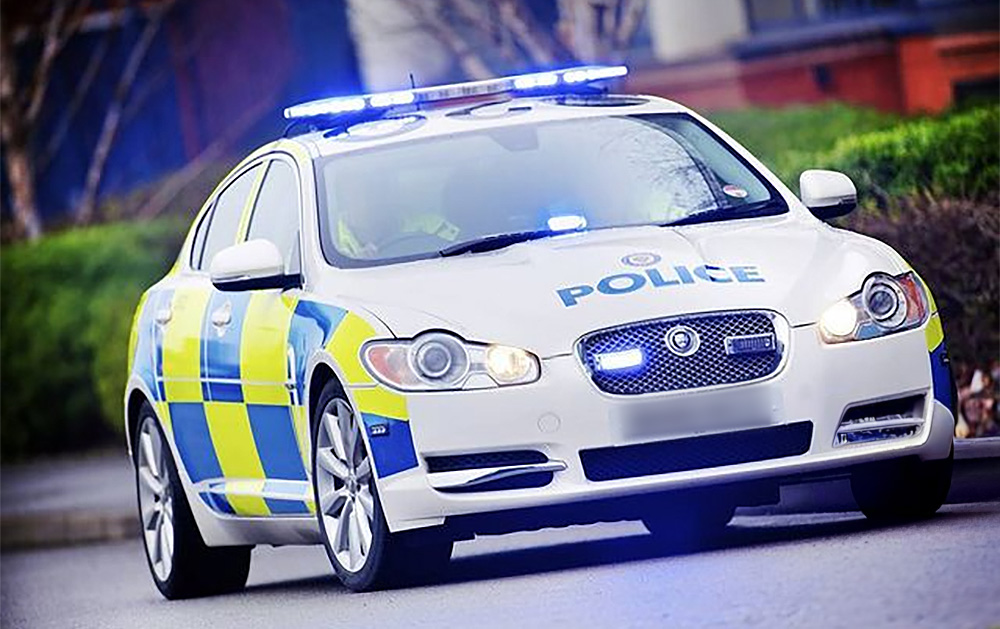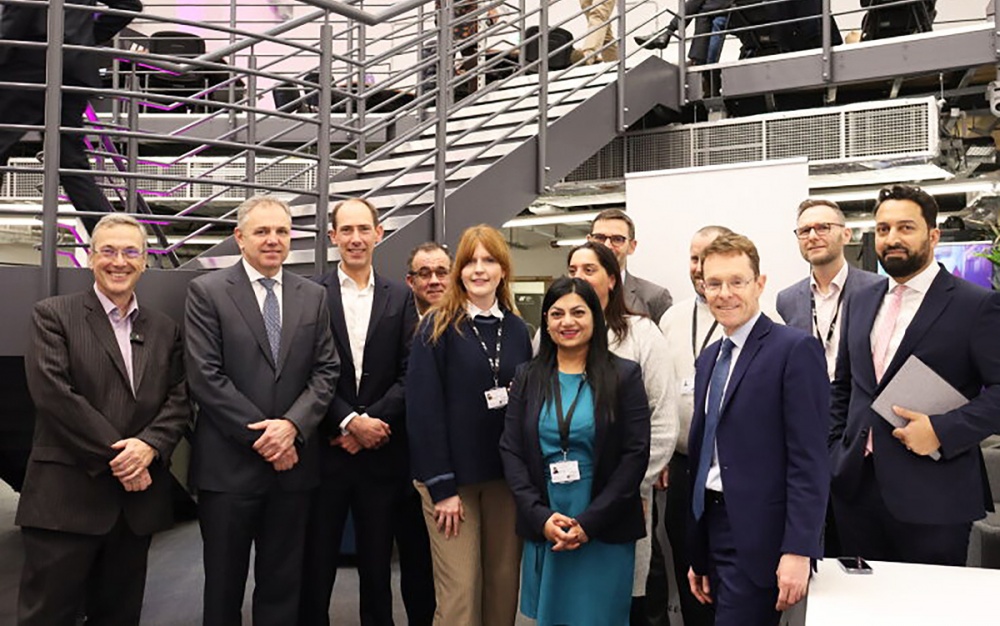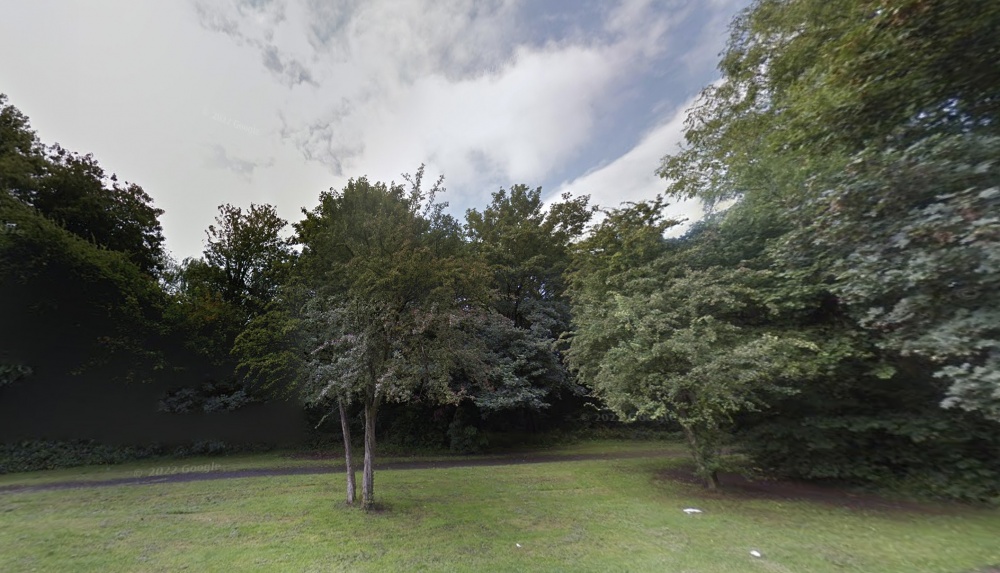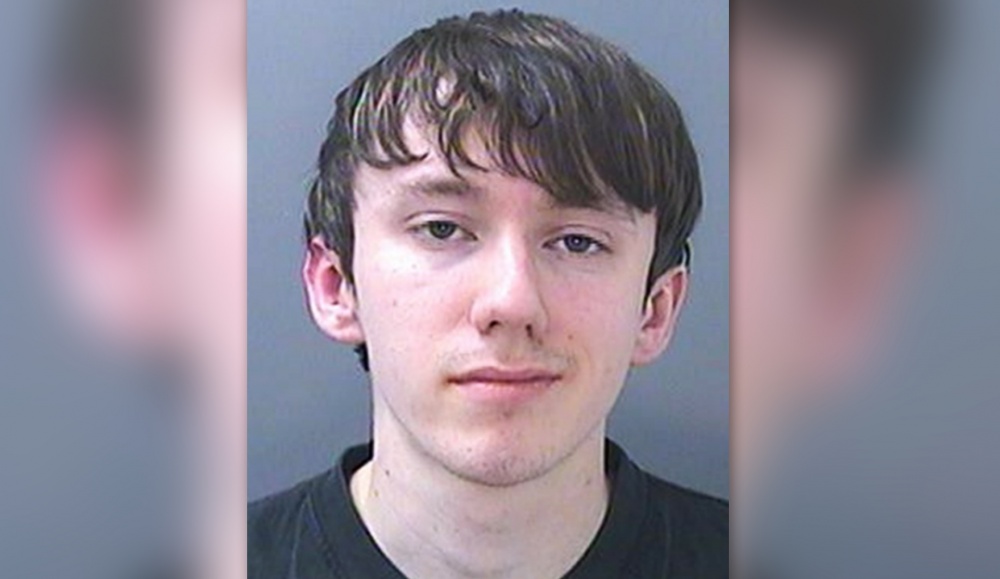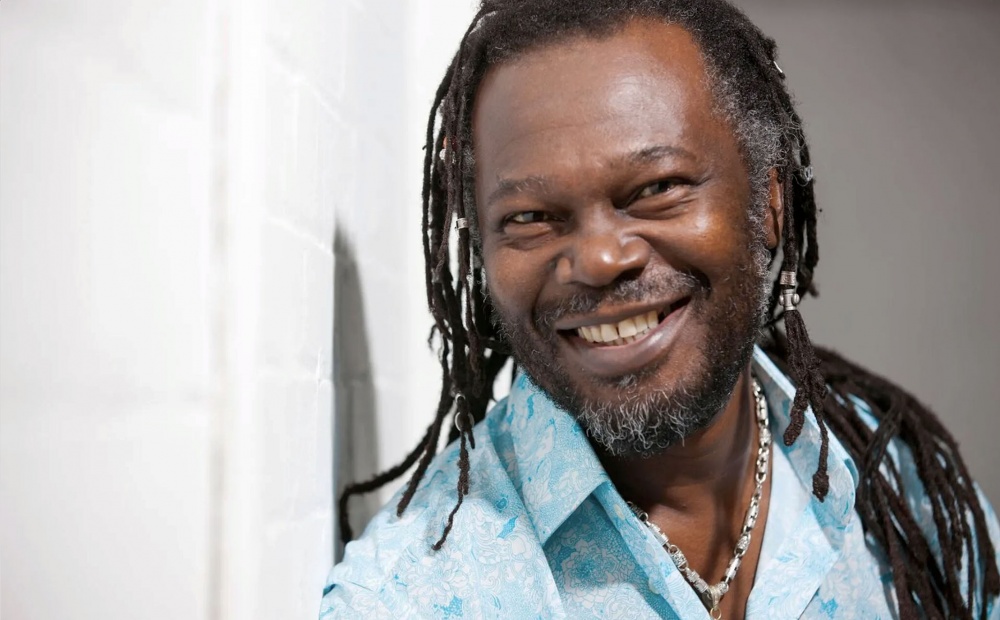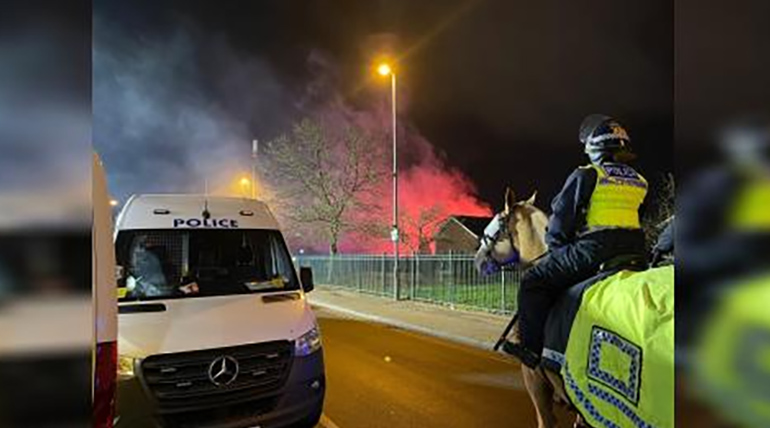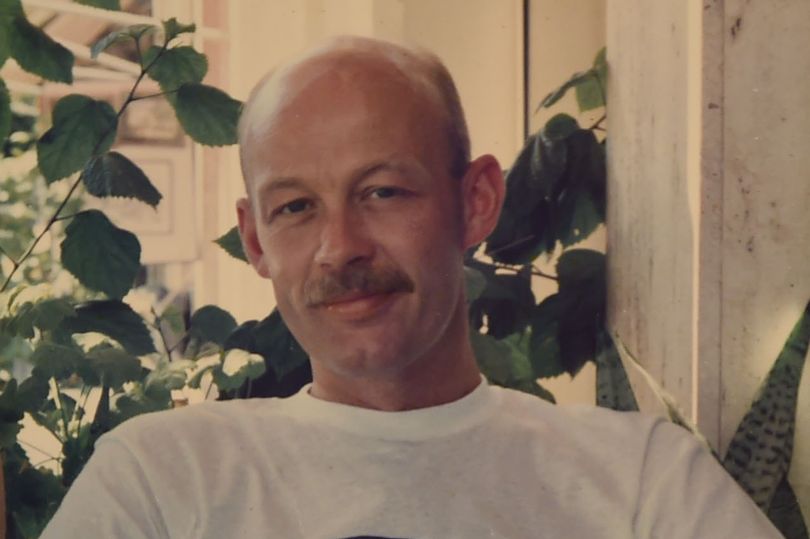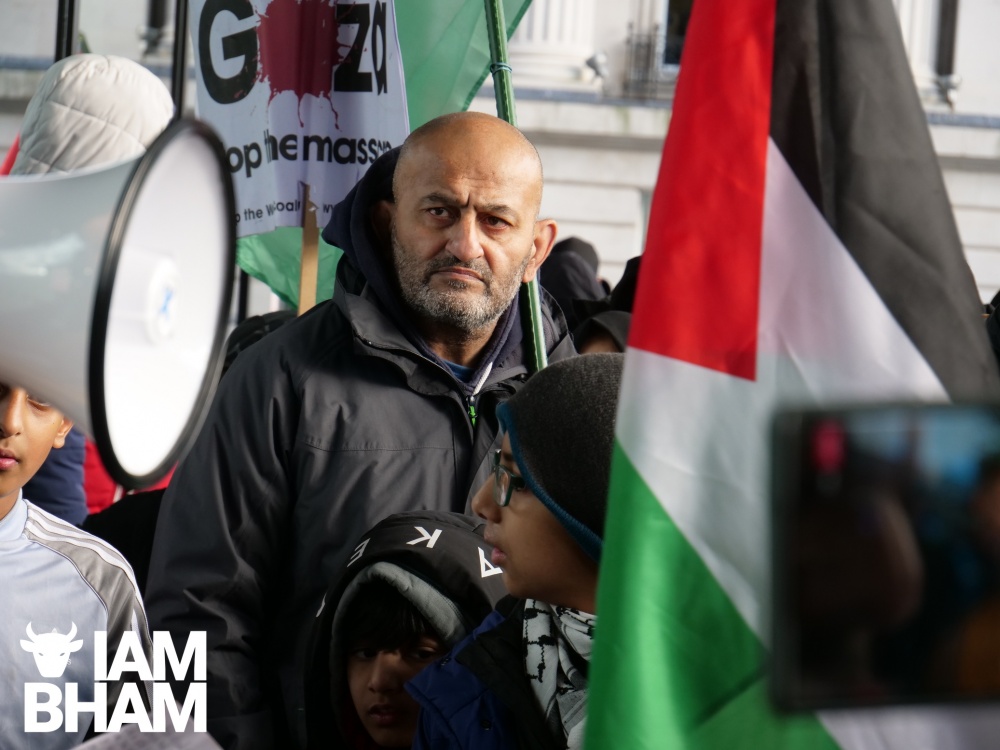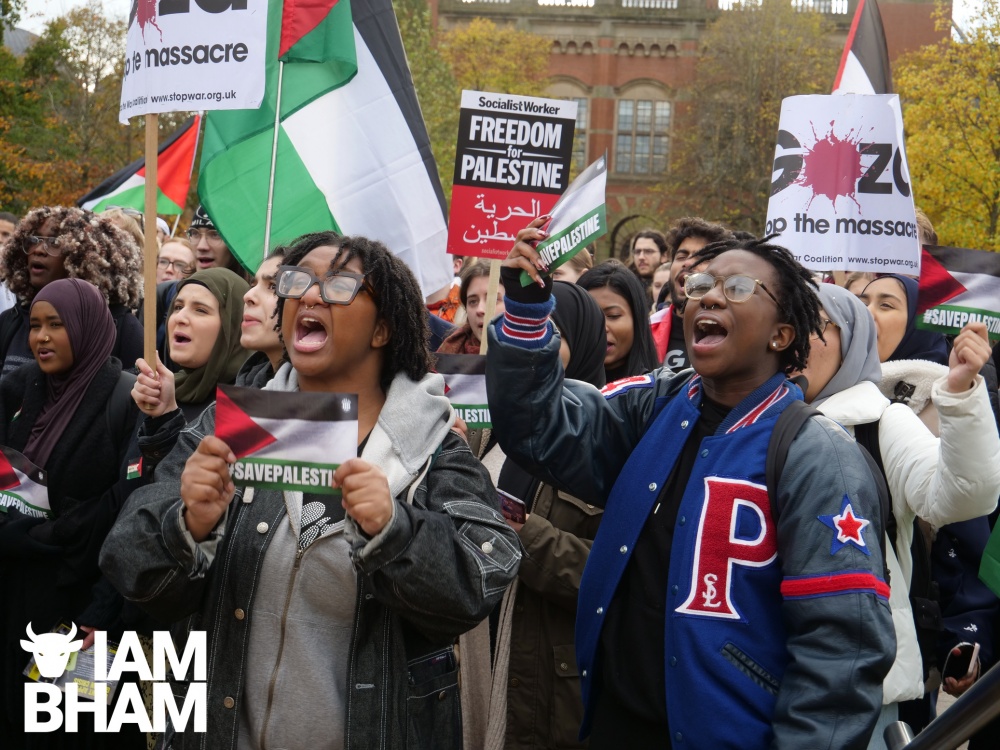People are fuming over a photo of a British road sign featuring Arabic… only it’s a fake!
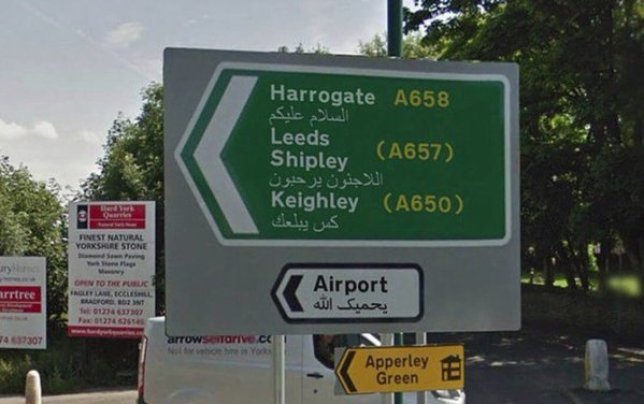
People are getting majorly ticked off after discovering a traditional British road sign in gloriously British Yorkshire has suddenly been adorned with Arabic translations for the names of several destinations.
A photo circulating on social media which shows a road sign – believed to be in Yorkshire – with distance directions to Harrogate, Leeds, Shipley and Keighley, has got people in a fix after Arabic words appear underneath the names of locations in English.
The image displays Arabic script on the signage which is very rare to appear on British signage. Rare for a reason too, because it never happens. As it turns out, the road sign is not only a fake image photoshopped for spurious and misleading purposes but all of the Arabic words -which some have mistaken for Urdu to reflect the large South Asian population in northern England – are, in fact, just basic greetings and pleasantries shared and used daily in the Arabic language.
But that hasn’t stopped racists and borderline foaming-at-the-mouth xenophobes taking it at face value and believing it really existed. Many of whom are vexed that a UK road sign should feature any other language besides English (It’s worth noting road signs in Wales feature Welsh as well as English).
Fortunately, tweeter ‘Gareth Ebenezer‘ was able to clarify the facts of the matter, writing: “Here’s the road sign before it was photoshopped to meet your hateful, hate-filled agenda.”
It appears that Twitter user @Juliet777777 first posted the image, which she included with the not-at-all hyperbolic caption ‘Great Britain is now officially the Middle East’. Really?
Thankfully, the Twitter user, who regularly posts similarly fake tweets, had had their account suspended.
And here's the road sign before it was photoshopped to meet your hateful, hate-filled agenda. pic.twitter.com/vKDjOKCgVb
— Gareth Eb (@Ebenezer68) May 18, 2016
Most Arabic speakers immediately spotted that the sign was in fact not in the Urdu language, which is spoken and written in Pakistan.
The Arabic phrases that appear on the photoshopped picture of the sign include “Asalaam’alaikum”, a common greeting meaning ‘Peace be with you”.
Also appearing on the sign include the phrases “How are you?” and “May God bless you.” Clearly the person who created the dodgy manipulated image needs to brush up on their research skills.






